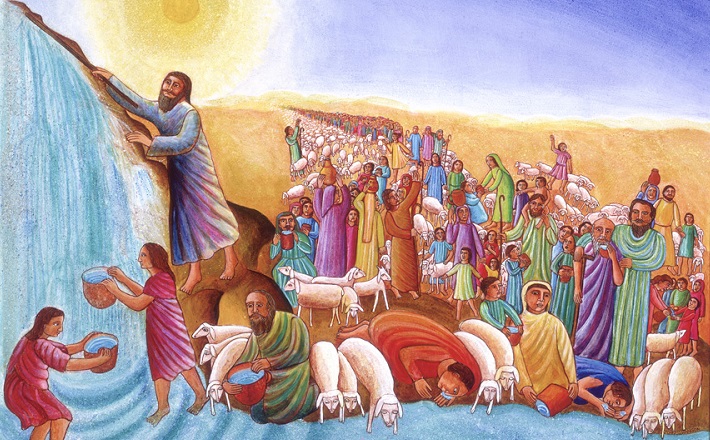Commentary on Psalm 40:1-10
[This is Week 5 of a 6-week preaching series on Psalms.]
[This is Week 5 of a 6-week preaching series on Psalms.]
[This is Week 5 of a 6-week preaching series on Psalms.]
Week 5 (June 28, 2015)
Preaching text: Psalm 40:1-10; accompanying text: Luke 17:11-19
Reorientation, Part 2: A New Song
The most famous version of Psalm 40 is by the rock band U2. For many years they ended most concerts singing, “I will sing, sing a new song.”
The “new song” (Hebrew: shir chadash) is most likely a technical Hebrew term for what psalms scholars usually describe as the “song of thanksgiving” — a song that is sung after the psalmist has been delivered by the Lord from the jaws of some crisis.
Brueggemann calls these poems “psalms of reorientation (or new orientation).” These psalms “bear witness to the surprising gift of new life just when none had been expected.”1 They recognize that the ship has sailed through the storm and a new shore has been reached. But having sailed through the flood and the hurricane, there is no going back to a naive harbor childlike “orientation.” These psalms speak for those who have been brought through a deep crisis. As such, they know that faith that speaks the truth can never pretend that all will always be well and that all is as it should be. And yet, they have experienced new life and grace — so they know that despair is not all powerful and evil does not have the last word.
Psalm 40 is typical of the song of thanks because it:
- Describes the time of crisis and how the psalmist asked God for help (verses 1-3)
- Praises God (verses 4-6)
- Describes the help that God gave (verses 7-10)
In regard to Psalm 40, the opening verse is mistranslated in most versions. It should not say, “I waited patiently.” The prayers for help cry out, “How long?!” “I waited and waited” is both a more literal and more faithful translation.
The other thing that should be noted is that the psalm calls for testimony: “I have spoken of your faithfulness and your salvation” (verse 10). When we receive God’s aid, the “thank you note” that God desires is that we tell others where they, too, can find God.
The songs of thanksgiving are reorientation psalms because they are the songs of praise that are sung by those who have walked the darkest valleys, stood in the midst of the shaking mountains, experienced life when the bottom drops out.
Life will never be the same. But God met these sufferers in the depths of their sufferings. And they have a simple message: God found me. Praise the Lord.
Hymn Suggestions:
- “My God How Wonderful Thou Art”
- “Crown Him with Many Crowns”
- “How Great Thou Art”
- “I’m So Glad Jesus Lifted Me”
Notes:
1. Walter Brueggemann, Message of the Psalms, (Minneapolis, Minn.: Augsburg Publishing House, 1984), 123-124.


June 28, 2015